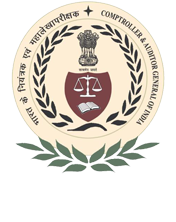Audit Reports

Jammu and Kashmir State (Upto 30-Oct-2019)
Report of 2009 - Performance Audit on Civil of Government of Jammu Kashmir
Overview
This Report contains Civil, Revenue and Commercial chapters comprising 22 paragraphs and seven performance reviews (including one integrated audit of Social Welfare Department). Copies of draft paragraphs and reviews were sent to the Commissioner/Secretary of the Department concerned by the Principal Accountant General with a request to furnish replies within six weeks. However, in respect of 16 draft paragraphs and seven performance reviews included in the Report, no replies were received from the Commissioners/Secretaries concerned. A synopsis of the important findings contained in the Report is presented in the Overview.
Government of India launched (April 2005) the National Rural Health Mission (NRHM)to carry out necessary architectural correction in the basic health-care delivery system. The Plan of Action includes increasing public expenditure on health, reducing regional imbalance in health infrastructure, decentralization and district management of health programmes, community participation and operationalising community health centres into functional hospitals. The performance audit review showed that the status of health profile of the State has been quite encouraging vis-a-vis the performance indicators available for the country. These can be further improved if there is proper fund management/utilisation and various sectors involved are covered in conformity with the guidelines issued for implementation of the Programme. There are large gaps in planning as well as implementation of the Mission activities in the State even after four years of launching the programme. This is evidenced by the findings that no new health centre was put in place, essential services and amenities were not available in many centres and there was critical shortage of technical manpower. Maternal and child health programmes have not made much headway. Planning, implementation and monitoring of the programme through participation of NGOs and community-based organisations was non-existent.
Government of India (GOI) introduced the 'Modernisation of Police Forces' (MPF) scheme in 1969 (modified in 2000-01, was extended for a period of ten years) to meet the deficiencies in basic infrastructure like Police Stations/Police Posts and police housing, modern weaponry, mobility, communication, forensic science equipment and skill up-gradation of police personnel. Implementation of the scheme during the review period was satisfactory with regard to the weaponry and training components. However, infrastructure development is a matter of serious concern, as the police personnel were not provided adequate level of housing, secured police stations and outposts despite availability of funds. Inadequate provision of vehicles at the field level is another area of concern as it has a direct bearing on the response time. Communication system including computerisation needs to be addressed on a priority basis, as this would enable the force to share critical information rapidly.
Download Audit Report
-
Report of 2009 - Full Report
 (1.89 MB)
Download
(1.89 MB)
Download
-
Preface
 (0.01 MB)
Download
(0.01 MB)
Download
-
Overview
 (0.04 MB)
Download
(0.04 MB)
Download
-
Chapter 1 - Performance Review
 (1.15 MB)
Download
(1.15 MB)
Download
-
Chapter 2 - Audit of Transactions
 (0.10 MB)
Download
(0.10 MB)
Download
-
Chapter 3 - Integrated Audit
 (0.09 MB)
Download
(0.09 MB)
Download
-
Chapter 4 - Revenue Receipts
 (0.22 MB)
Download
(0.22 MB)
Download
-
Chapter 5 - Commercial Activities
 (0.20 MB)
Download
(0.20 MB)
Download
-
Appendices
 (0.20 MB)
Download
(0.20 MB)
Download

